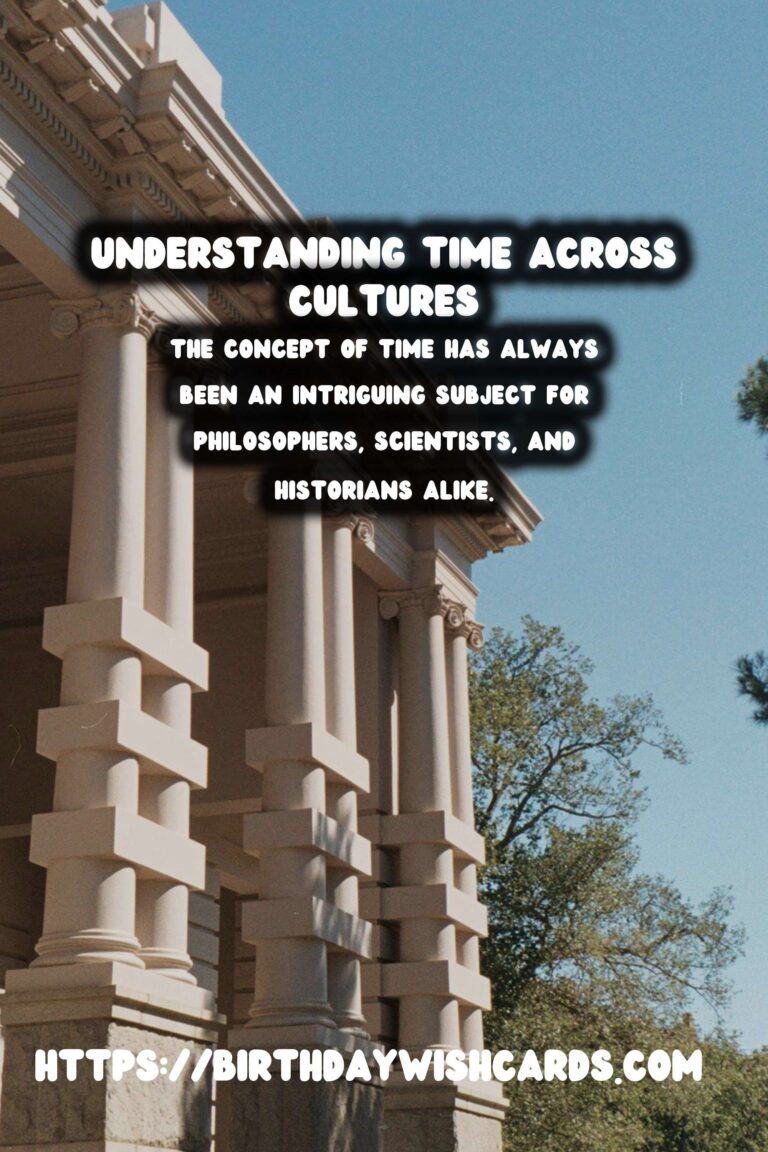
The concept of time has always been an intriguing subject for philosophers, scientists, and historians alike. Throughout history, different cultures have perceived and measured time in varied ways, each contributing to our current understanding of temporal dynamics.
The Ancient Egyptians and the Sundial
The ancient Egyptians were among the first to develop a structured system for measuring time. Their invention, the sundial, was a simple yet effective tool that relied on the sun’s movement across the sky. This method was not only practical for agriculture and religious rituals but also demonstrated their profound understanding of astronomy.
Chinese Water Clocks of the Han Dynasty
During the Han Dynasty, the Chinese developed water clocks, which were used to measure time long before the mechanical clock was invented. These devices relied on the steady flow of water to keep time, revealing their innovative approach to solving practical problems with available resources. This method reflects the importance of precision and reliability in Chinese culture.
Mayan Calendar: Time and Spirituality
The Mayan civilization had a sophisticated understanding of time, which was deeply intertwined with their spiritual beliefs. The Mayan calendar, known for its complexity and accuracy, was used not only for agricultural purposes but also to predict celestial events and their religious significance. This showcases the holistic way Mayans integrated time and spirituality.
Western Calendars: From Julian to Gregorian
The Western concept of time has evolved significantly, particularly with the transition from the Julian calendar to the Gregorian calendar. This shift was driven by the need for greater accuracy in aligning the calendar year with the solar year, highlighting the Western emphasis on precision and order in timekeeping.
Islamic Timekeeping: The Lunar Calendar
The Islamic calendar is based on lunar cycles, reflecting the cultural importance of the moon within Islamic societies. This approach to timekeeping underscores the integration of religion with daily life and dictates important religious observances, demonstrating how time is perceived through a spiritual lens.
Aboriginal Dreamtime: The Timelessness
For the Aboriginal people of Australia, time is not linear as in many Western cultures. Instead, ‘Dreamtime’ represents an eternal cycle, a continuous flow of time that interconnects people with the land, ancestors, and the cosmos. This perception challenges the typical linear notion of time, proposing a timeless reality.
Conclusion: The Fabric of Cultural Identity
The varying perceptions of time across cultures illustrate how time is more than just hours and minutes; it shapes cultural identities and civilizations. By understanding these differences, we gain insights into the diverse ways humans have related to the passage of time across history.
The concept of time has always been an intriguing subject for philosophers, scientists, and historians alike. For the Aboriginal people of Australia, time is not linear as in many Western cultures. 
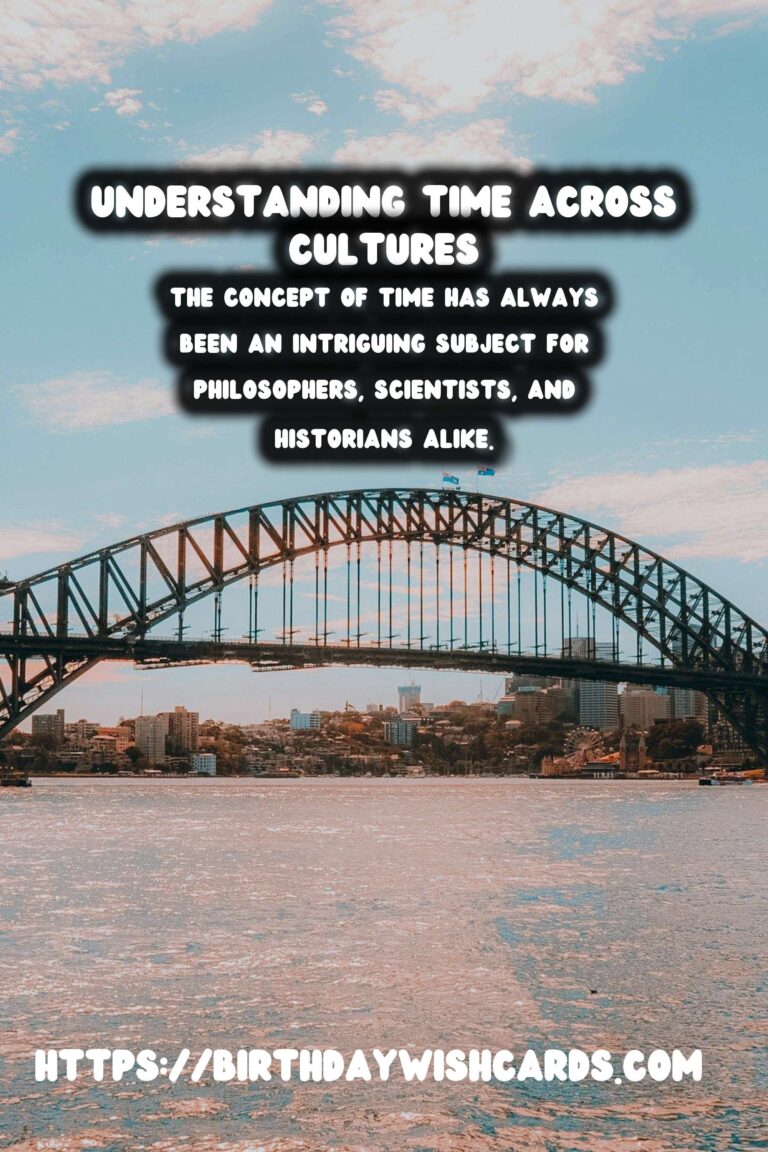
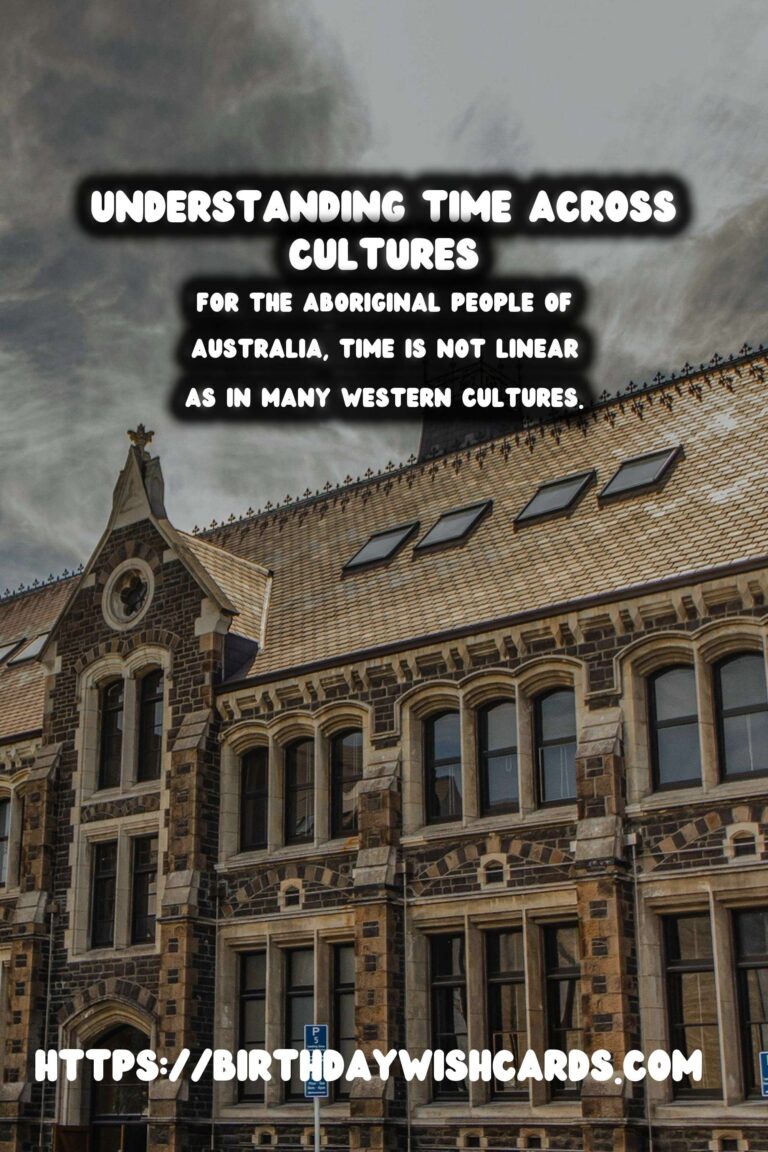
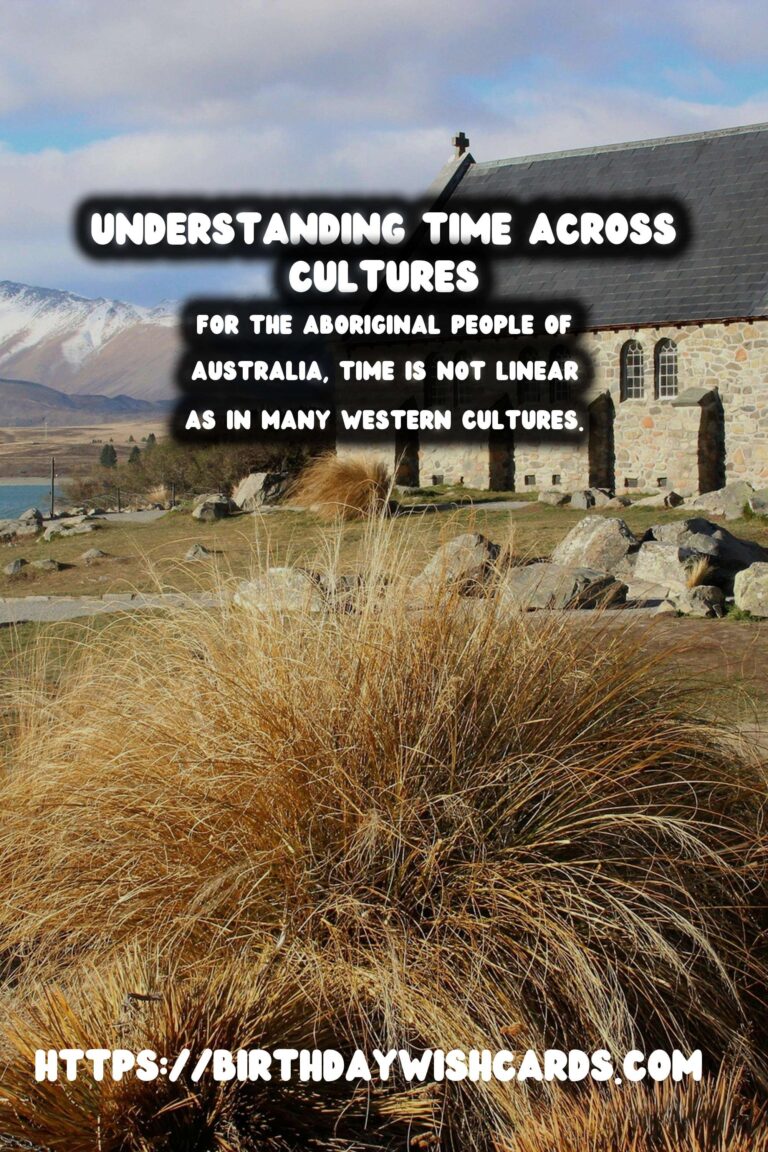
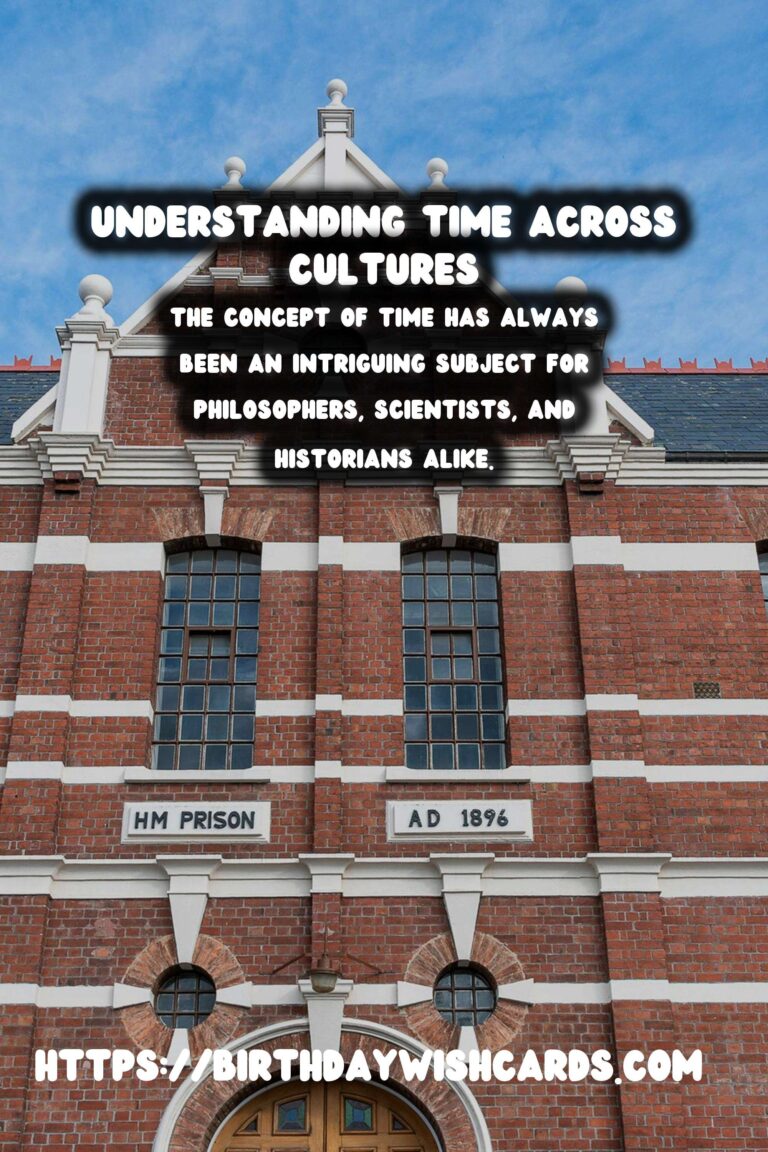
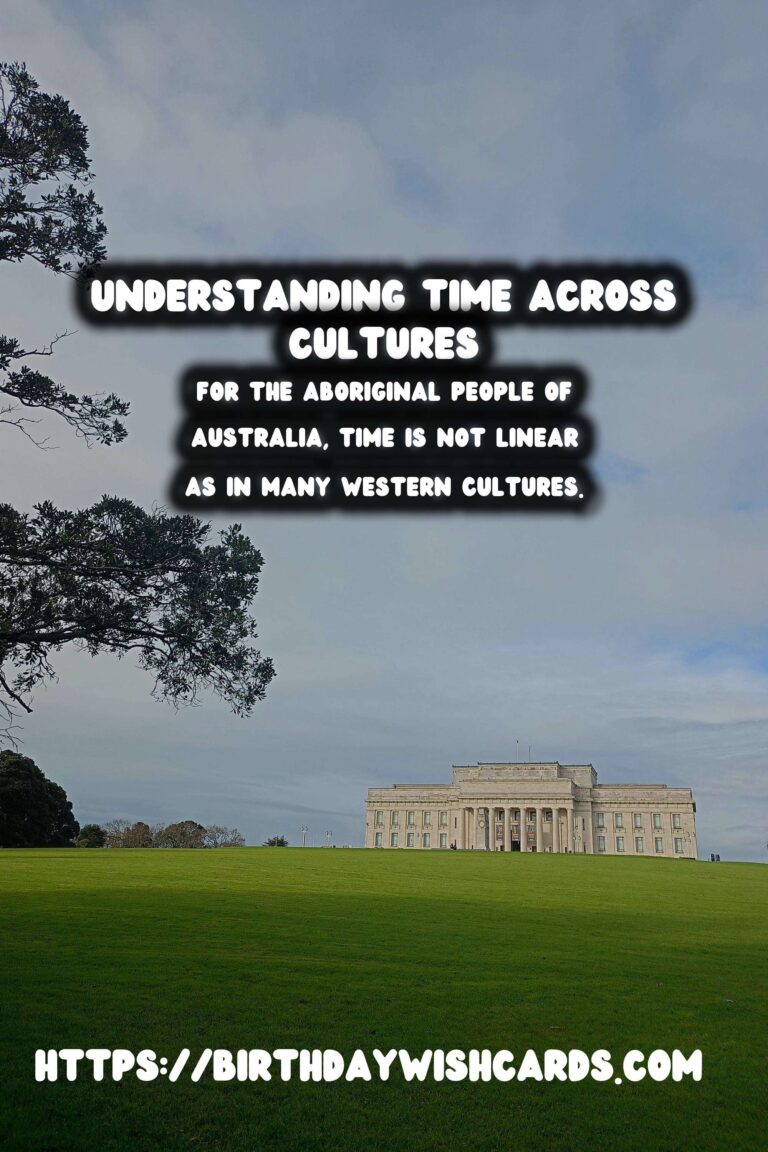
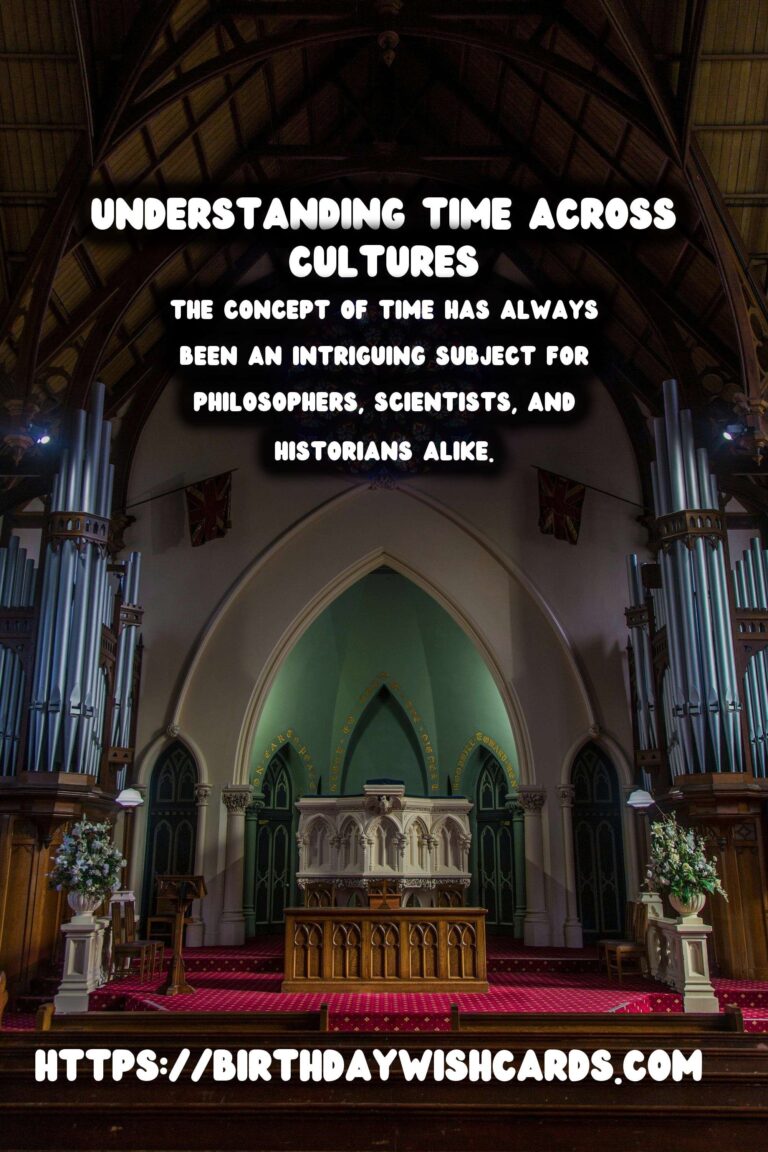
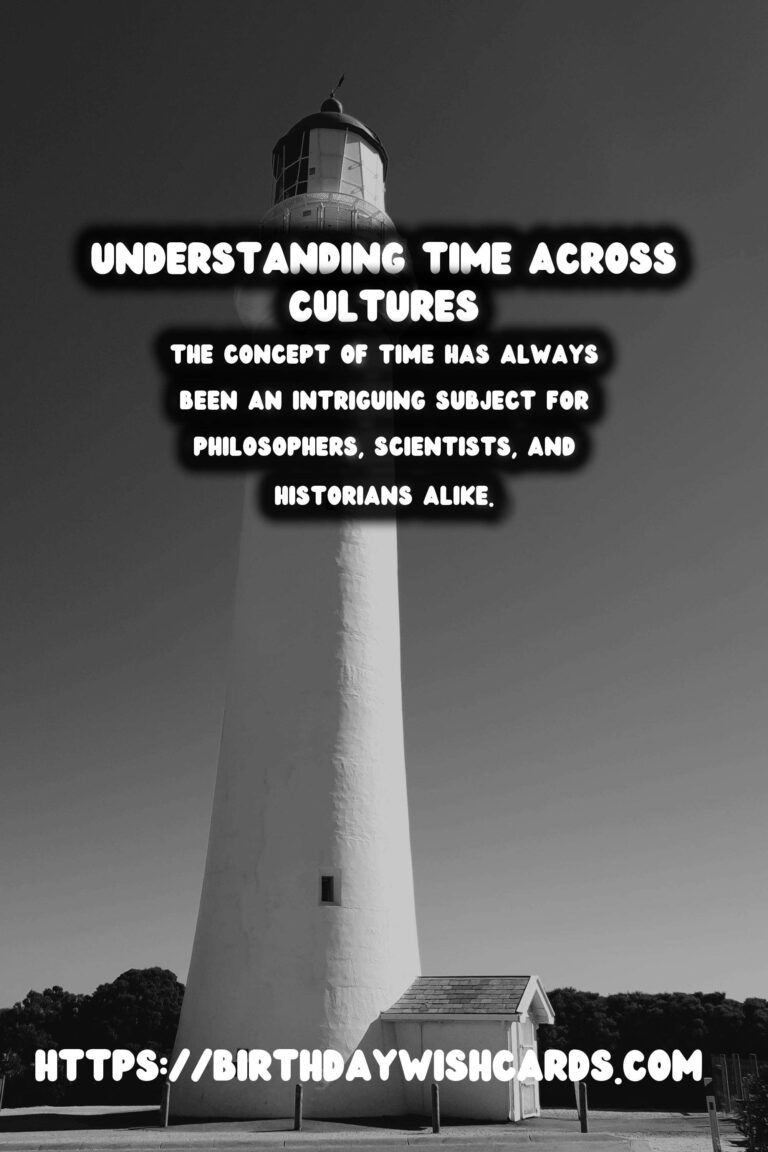
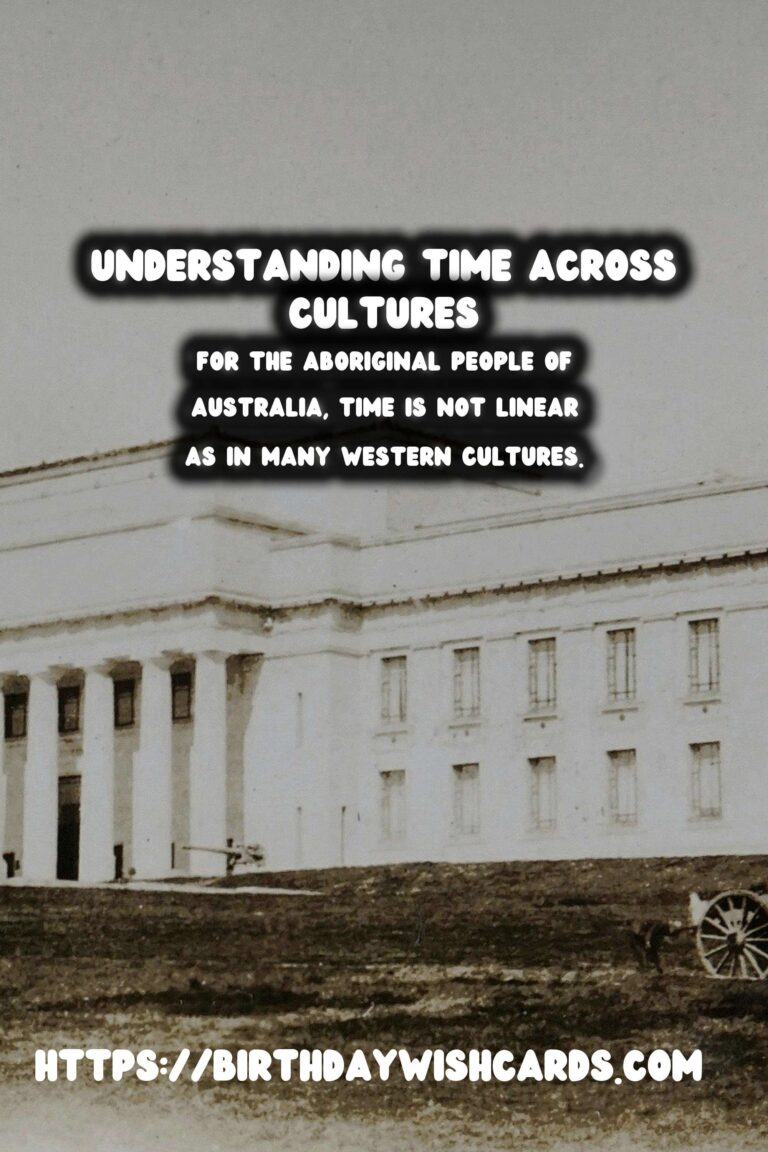
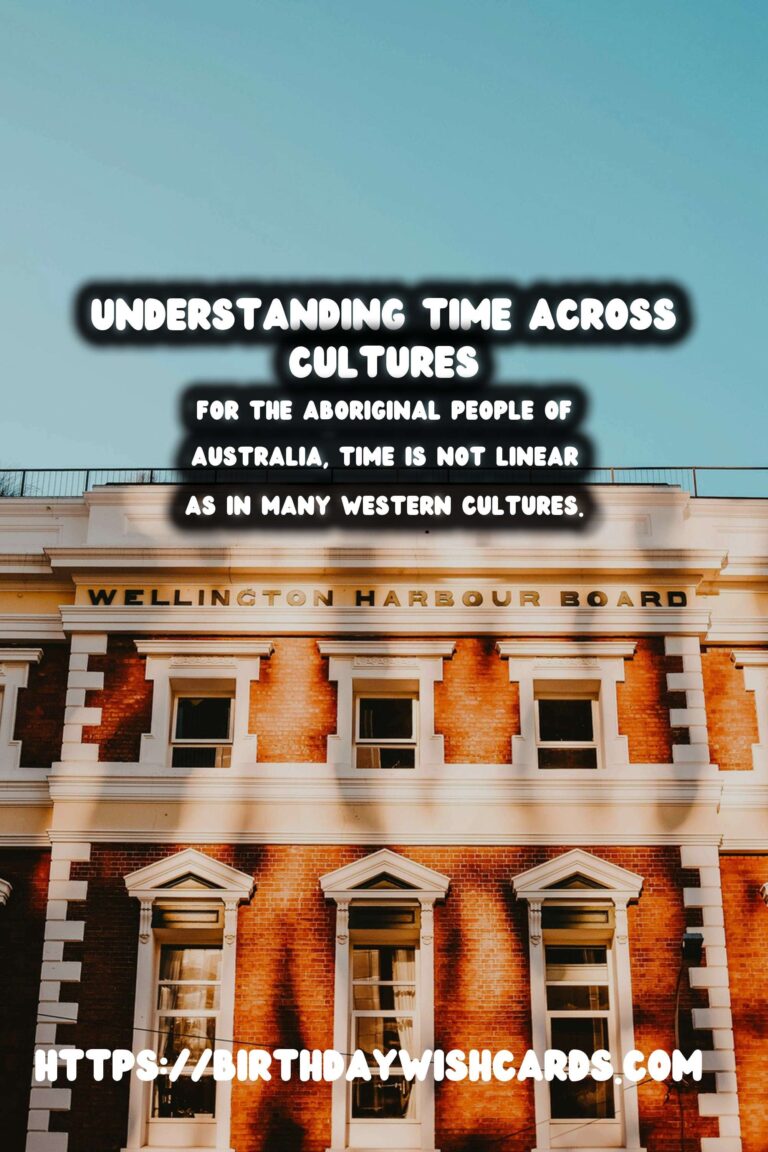
#TimeHistory #CulturalPerception




